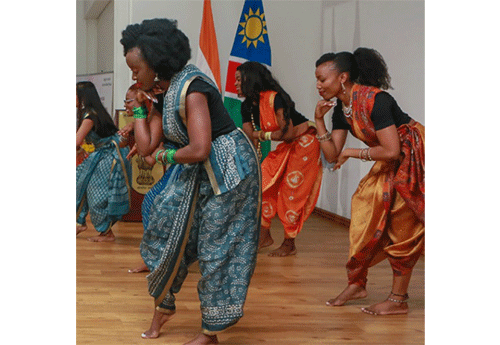Namibia-Indo relations were recently celebrated at the High Commission of India, bringing together Namibians who had participated in the capacity-building and skills development programmes in India.
The 59th ITEC Day and India-Namibia Partnership in Skills Development and Capacity-Building was graced by higher education minister Itah Kandjii-Murangi, labour minister Utoni Nujoma, deputy international relations minister Jenelly Matundu, deputy ICT minister Emma Theofelus among other dignitaries.
Other senior government officials and representatives of universities and think tanks, alumni of ITEC and the Indian Council for Cultural Relations also attended the celebrations.
Indian High Commissioner Mandarapu Subbarayudu said the government’s Indian Technical and Economic Cooperation (ITEC) programme is based on solidarity and mutual respect, voluntary cooperation free from any conditionalities, and national ownership aligned with priorities of partner countries, including Namibia.
“ITEC is demand-driven and response-oriented, and is about sharing India’s experience, expertise and knowledge in its process of nation-building,” he noted.
ITEC addresses needs in quality education for all, skills development, affirmative action and human resources development strategies, media and many more aspects.
India’s capacity-building assistance also includes deputation of Indian experts, establishment of centres of excellence, and vocational training centres.
“Over the years, ITEC has created a large network of alumni, spread across 161 countries. Its delivery mechanisms have expanded to include e-ITEC, ITEC-Onsite and ITEC-Executive,” Subbarayudu said.
He added: “More than 1 700 Namibian professionals and scholars, including more than 1 400 ITEC trainees, have benefited from the capacity-building assistance from India so far. This figure does not include all those who received training in Namibia from the Indian experts on deputation”.
The courses attended by Namibian nationals cover a broad spectrum, including information and communication technology, teacher training and languages, labour, skills development, entrepreneurship development, rural development and women’s empowerment, finance, accounting, audit and accounts, solar electrification, diplomacy, forensics and many more.
The relationship between India and Namibia was rekindled when a memorandum of understanding was signed between the two states last year for the creation and operation of the India-Namibia Centre of Excellence in Information Technology (CEIT) for training in specialised areas of information technology.
This is situated at the Namibia University of Science and Technology. The Indian government initiated the setting up of CEIT to have international outreach for imparting ICT education in Namibia.
Diplomatic relations with independent Namibia were established from independence, with the Indian Observer Mission being upgraded to a fully-fledged high commission on 21 March 1990. Namibia opened a fully-fledged resident mission in New Delhi in March 1994.



